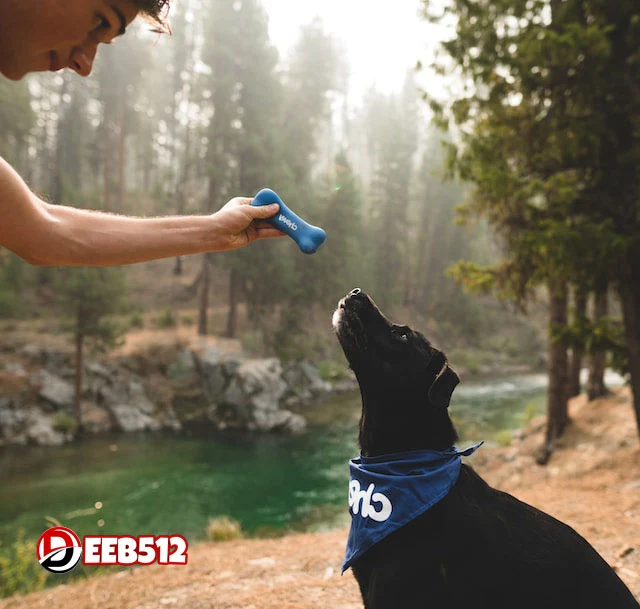
Mononucleosis is a viral infection that primarily affects humans, but can dogs get mononucleosis as well? In this article, we will explore the risks and symptoms associated with mononucleosis in dogs. Understanding this condition is crucial for dog owners to ensure the well-being and health of their furry friends.
What is Mononucleosis?

Mononucleosis, also known as "mono" or the "kissing disease," is a contagious viral infection commonly caused by the Epstein-Barr virus (EBV) in humans. It primarily affects the lymph nodes and throat, leading to symptoms such as fatigue, sore throat, and swollen glands. The infection is usually transmitted through saliva, hence the nickname "kissing disease."
Can Dogs Get Mononucleosis?
While mononucleosis is primarily a human illness, dogs can contract a similar condition caused by the canine herpes virus. This virus is different from the Epstein-Barr virus which affects humans. Canine mononucleosis is a relatively rare condition in dogs, but it can occur in certain circumstances.
Risk Factors for Mononucleosis in Dogs

Certain factors may increase a dog's susceptibility to mononucleosis. These include:
- Weakened immune system: Dogs with weakened immune systems, such as those with underlying health conditions or undergoing immunosuppressive treatments, may be more prone to mononucleosis.
- Exposure to infected dogs: Close contact with infected dogs can increase the risk of contracting mononucleosis.
- Stress: Prolonged stress can weaken a dog's immune system, making them more susceptible to infections like mononucleosis.
Symptoms of Mononucleosis in Dogs
The symptoms of mononucleosis in dogs may vary but can include:
- Lethargy and fatigue
- Loss of appetite
- Swollen lymph nodes
- Fever
- Coughing or sneezing
- Nasal discharge
- Eye discharge
Diagnosing Mononucleosis in Dogs

Diagnosing mononucleosis in dogs can be challenging, as the symptoms can be similar to other respiratory infections. However, veterinarians may perform various tests, including blood tests, viral culture, and polymerase chain reaction (PCR) testing, to confirm the presence of the canine herpes virus.
Treatment for Mononucleosis in Dogs
There is no specific cure for mononucleosis in dogs. Treatment mainly focuses on managing the symptoms and supporting the dog's immune system. This may involve providing supportive care, such as fluids, nutrition, and medications to alleviate discomfort.
Preventing Mononucleosis in Dogs
Preventing mononucleosis in dogs primarily involves reducing exposure to infected animals and maintaining a healthy immune system. Vaccines are not available for mononucleosis in dogs, so it is essential to prioritize general wellness practices, including regular veterinary check-ups, a balanced diet, and minimizing stress.
Frequently Asked Questions (FAQs)

9.1. Can dogs transmit mononucleosis to humans?
No, dogs cannot transmit mononucleosis to humans. The canine herpesvirus that causes mononucleosis in dogs is different from the Epstein-Barr virus that affects humans.
9.2. Is there a vaccine for mononucleosis in dogs?
Currently, there is no vaccine available specifically for mononucleosis in dogs. The best approach is to focus on maintaining a healthy immune system and practicing good hygiene to prevent the spread of infections.
9.3. Can dogs with mononucleosis be cured?
There is no cure for mononucleosis in dogs. Treatment mainly involves managing the symptoms and providing supportive care to help the dog recover.
9.4. How long does it take for a dog to recover from mononucleosis?
The recovery period for dogs with mononucleosis can vary. It depends on the dog's overall health, the severity of the infection, and the effectiveness of the supportive care provided. In some cases, dogs may take a few weeks to recover fully.
9.5. Are certain dog breeds more susceptible to mononucleosis?
There is no evidence to suggest that specific dog breeds are more susceptible to mononucleosis. However, dogs with weakened immune systems may be at a higher risk.
9.6. Can mononucleosis in dogs be fatal?
While mononucleosis in dogs can cause severe symptoms, it is rarely fatal. With appropriate supportive care and management, most dogs can recover from the infection.
9.7. Can mononucleosis affect a dog's behavior?
Mononucleosis can cause lethargy and fatigue in dogs, which may affect their behavior. They may appear less active or interested in their usual activities.
9.8. Is mononucleosis contagious among dogs?
Yes, mononucleosis can be contagious among dogs. Close contact with infected dogs, such as through shared water bowls or direct contact with nasal or ocular discharge, can facilitate the transmission of the virus.
9.9. Can mononucleosis in dogs recur?
Recurrent mononucleosis in dogs is possible but relatively rare. Once a dog recovers from the initial infection, their immune system typically develops some level of immunity to the virus.
9.10. Can mononucleosis in dogs cause long-term health issues?
In most cases, mononucleosis in dogs does not cause long-term health issues. However, it is essential to monitor their overall health and seek veterinary care if any complications or persistent symptoms arise.
Conclusion
While mononucleosis is primarily a human illness, dogs can also be affected by a similar condition caused by the canine herpes virus. Understanding the risks and symptoms associated with mononucleosis in dogs is crucial for dog owners to ensure the well-being of their furry companions. Although relatively rare, mononucleosis in dogs can cause discomfort and require supportive care for symptom management. By practicing good hygiene, reducing exposure to infected animals, and prioritizing overall wellness, dog owners can help prevent the spread of mononucleosis and promote a healthy immune system for their beloved pets.
